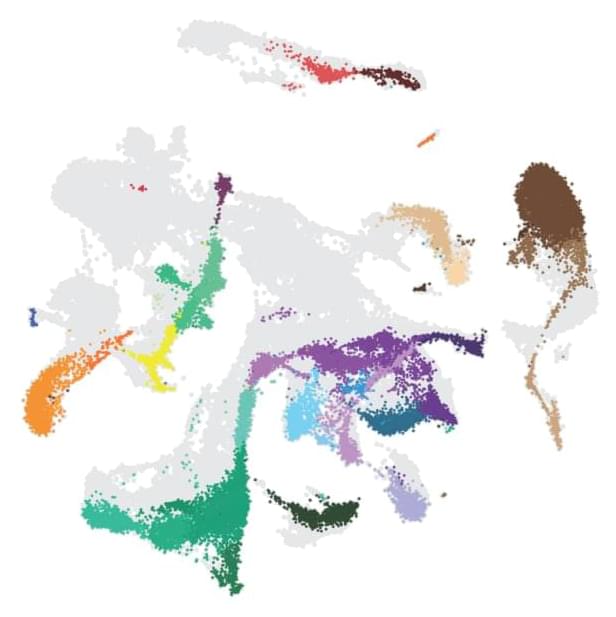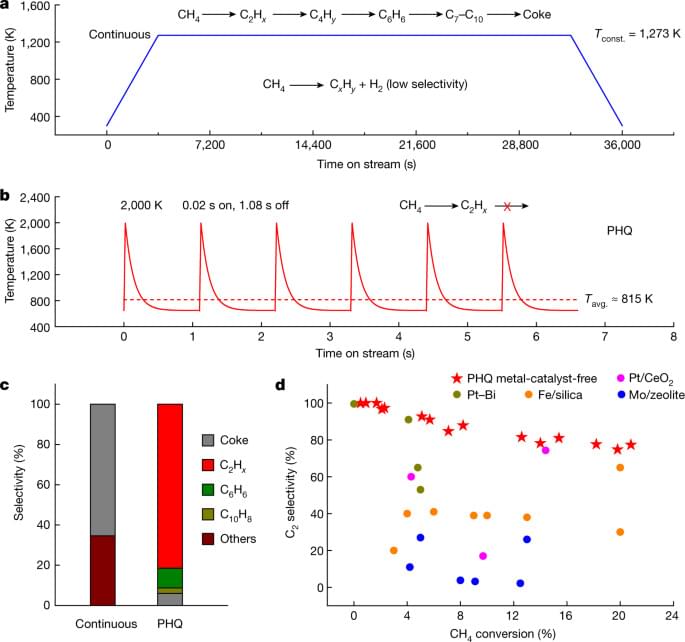
Get the latest international news and world events from around the world.



Renault’s first hydrogen-powered EV will drive 500 miles per charge
French car manufacturer Renault Group unveiled their novel Scénic Vision concept car that is powered by a battery that runs on hydrogen at the ChangeNOW summit.
The French carmaker will relaunch its popular Sc é nic model as an electric vehicle in 2024 and aims to add a hydrogen power source to it by 2030.
This new model is part of Renault’s sustainability strategy, and with the launch of the Renaulution strategic plan, Renault Group and its brands have embarked on a major transformation, moving from a race for volume to the creation of economic, environmental, and social value, with the aim of becoming carbon neutral in Europe by 2040 and worldwide by 2050.

NASA’s Lucy spacecraft captured lunar eclipse from space
This week’s lunar eclipse wasn’t only observed from the ground and from the International Space Station — it was also observed from 64 million miles (100 million kilometers) away from Earth by the Lucy spacecraft. Lucy, which is an uncrewed craft from NASA and the Southwest Research Institute on its way to study the Trojan asteroids in the orbit of Jupiter, got a view of the lunar eclipse on May 15 and was able to snap images over a period of three hours which have been turned into a time-lapse video:
The images were taken using Lucy’s L’LORRI instrument which captures high-resolution black and white images. It took 86 images in total which were combined together to create the time-lapse.
Even though Lucy is far away from Earth, the instrument was sensitive enough to be able to view the moon as it passed into the Earth’s shadow and was hidden in darkness for a short time.

UMN research shows people can control robotic arm with their minds
Researchers at the University of Minnesota have made a major breakthrough that allows people to control a robotic arm using only their minds. The research has the potential to help millions of people who are paralyzed or have neurodegenerative diseases.
The study is published online today in Scientific Reports, a Nature research journal.
To read the full research paper, entitled “Noninvasive Electroencephalogram Based Control of a Robotic Arm for Reach and Grasp Tasks,” visit the Nature Scientific Reports website.
Groundbreaking study demonstrates potential to help millions of people with disabilities.

Single Cell Analysis Technologies Help Generate Unprecedented Maps of Disease
Astronomy was born when early scientists peered into the sky with their naked eyes and recorded what they could see above them. Then, the invention of the telescope brought forth new insights. And today, astronomers conduct their studies from big observatories and launch sophisticated telescopes into space for a much more in-depth look.
Now, a similar evolution is occurring in biology as scientists develop new techniques for taking a closer look at cells—the basic living units of organs. The origins of cell biology date back to 1,665 when Robert Hooke was the first to look at a cell under a simple compound microscope. But while the development of more powerful microscopes such as the scanning electron microscope has allowed scientists to take a peek at molecules smaller than a billionth of a meter, until recently they have never had the ability to look at the molecular profile of a single cell.
Yale researchers across disciplines are using single cell technologies to profile various kinds of cells that exist together in both healthy and diseased organs and create the most detailed blueprints of diseases to date, as well as to better understand how various cells develop over time and interact with one another. Through creating these “cell atlases” of organs throughout the body, they hope to shed light on the mechanisms of a wide variety of diseases and biological development.

Space Renaissance Art & Science Festival — Berlin 7–9 July 2022
The Festival will take place, from 7 to 9 July 2022, at the Archenhold Observatory in Berlin (Germany).
You are welcome to join the Festival in presence, sizing an excellent opportunity to visit the historic Archenhold Observatory and the beautiful city of Berlin. However, the Festival will be an hybrid conference, therefore virtual attendees are welcome as well.
Register here for free: https://spacerenaissance.space/register-to-the-space-renaiss…rlin-2022/
A detailed programme, and all the information — including logistics and hotels accommodations — are ** available on this page:**
**The agenda, in brief:** * The first day, 7 of July, focuses on ** Space Philosophy & Policy**, with a Panel on Civilian Space Development — How to accelerate it? How to support new space industry to achieve the goal of kicking off civilian space development within 2030? What should space agencies do, and what should the space activist organizations do? * The 8 of July, ** Astronauts and Civilians, Science & Tech Day**, will see two panels: on Space Habitats and Analog Training; Space Night, after dinner: Night Observation at the giant telescope * The 9 of July, the ** Space Art Day**, with two art panels, in German and English language.
The programme includes several keynote speakers, e.g. Seth Shostak (SETI), Giuseppe Reibaldi and John Mankins (Moon Village Association), Michelle Hanlon (NSS President), Bob Zubrin (Mars Society Founder), Jan Wörner (former ESA Director General), Bernard Foing (SRI President, chair of ITACCUS and EuroMoonMars). Many experts will tell us what’s going on on the edge of space settlement, science, art and exploration.
Several space artists will present their artworks, including: Priscilla Thomas, Mary Kuiper, Barbara King, and many members of the MoonMars art group.
The Festival will host the GALIX Congress 2022.

Scientists discovers new properties of magnetism that could change our computers
Benjy WangProbably could be limited by a simulation restart.
Jim RohrichNo limits.
Omuterema Akhahenda shared a link.
PHYSICS:
Our electronics can no longer shrink and are on the verge of overheating. But in a new discovery from the University of Copenhagen, researchers have uncovered a fundamental property of magnetism, which may become relevant for the development of a new generation of more powerful and less hot computers.